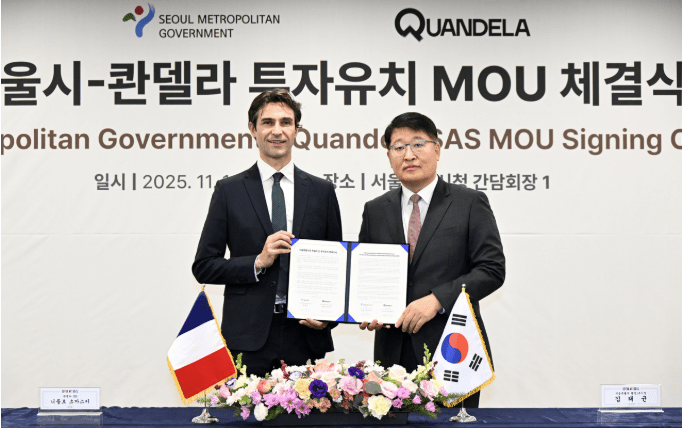Paris, June 4th – Quandela, a leader in quantum computing, and Alysophil, a company specializing in AI-assisted continuous flow chemistry, announce that TotalEnergies and MBDA have renewed their trust by extending their initial partnership. This new commitment will allow the four partners to continue working together on the contributions of quantum computing to the study of new materials. This partnership, initiated over a year ago, represents an important milestone in the practical application of quantum technologies to industrial challenges.
Quantum computing reinforcing AI
The project aims to enhance the design of new molecules by combining two breakthrough technologies: quantum computing and artificial intelligence. While AI has already proven its ability to accelerate the discovery of new materials, it now faces the limitations of classical computers, particularly when it comes to accurately simulating interactions at the electronic level. The quantum approach overcomes these limitations by leveraging the fundamental properties of quantum physics, allowing direct modeling of electron behavior within molecules.
The goal of the project is to explore new frontiers for innovative materials, such as high-performance polymers meeting the needs of industries that require materials which are more energetic, more resistant, and lighter. Machine learning algorithms, optimized to run on quantum processors, will make it possible to explore a much wider solution space than traditional approaches.
“This partnership, initiated with two cutting-edge players in the French DeepTech ecosystem, Alysophil and Quandela, and with an industrial leader such as TotalEnergies, is a true opportunity. It allows us to explore the potential of quantum computers combined with Artificial Intelligence and to draw insights to guide our research in the field, confirming our position as a leader in science and technological progress” says Denis Gardin, Director of Innovation at MBDA.
“The project fits perfectly into our strategy of exploring the potential benefits of Quantum Computing for our digital activities. Assessing the impact of Quantum Computing on Machine Learning-based algorithms is at the heart of our focus, particularly in the field of advanced materials” states Jean-Patrick Mascomere, Head of Scientific Computing at TotalEnergies R&D.
Complementary expertise to accelerate the development of new materials
The partnership is an important step in the industrialization of quantum technologies, by bringing together complementary areas of expertise. Alysophil contributes its know-how in machine learning and quantum chemistry, developing specific algorithms that will be used for quantum chemistry computations in the next phase of the project. Quandela complements this approach with its expertise in quantum machine learning, providing access to its photonic quantum processors (QPUs) and simulators, thereby significantly accelerating the prediction of chemical properties of materials. For its part, MBDA brings concrete perspectives for applying these new technologies, especially by steering the research toward the development of advanced materials.
“Our expertise in machine learning and quantum chemistry enables us to develop tailored algorithms for this ambitious project. This collaboration paves the way for a new approach to molecular design—faster and more accurate” explains Philippe Robin, President of Alysophil.
“Our quantum computing capabilities, combined with our expertise in quantum machine learning, allow us to explore novel approaches to material optimization. This collaboration perfectly illustrates the potential of combining quantum technologies with artificial intelligence to tackle real-world industrial challenges” says Niccolo Somaschi, co-founder and CEO of Quandela.
This hybrid approach, combining the power of AI with the unique capabilities of quantum computers, opens the door to a new generation of molecular design tools. By simulating the behavior of electrons within molecules using photonic qubits, researchers will be able to explore complex molecular configurations much more efficiently than with conventional methods. This acceleration promises to drastically reduce the time required to develop new materials, thus contributing to faster and more sustainable innovation across industries.

Artistic view of molecules and their electronic orbitals



